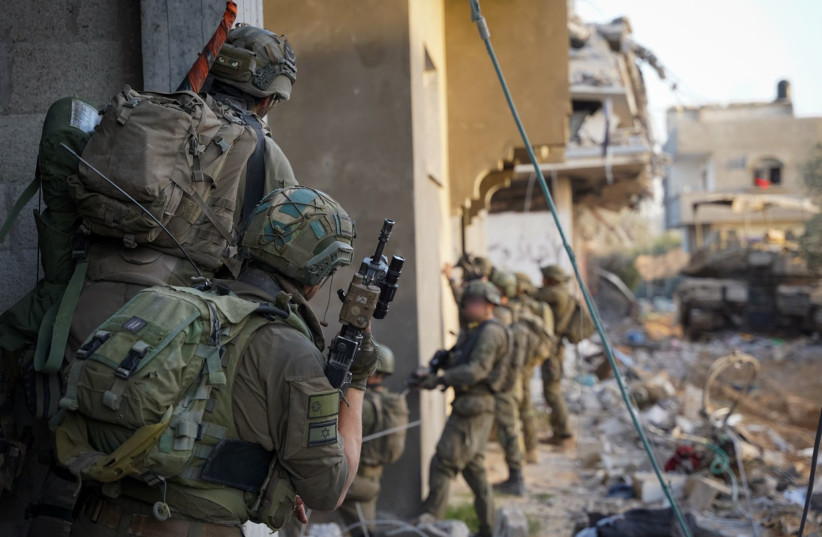Nearly half (47%) of Israeli residents believe returning the hostages taken by Hamas on October 7th is the highest priority of Israel’s war against Hamas – whereas 42% of Israelis said that toppling Hamas’ grip over the Gaza Strip should be Israel’s main priority, a poll published Tuesday by the Israeli Democracy Institute (IDI) discovered.
The 47% to 42% split is divided further based on demographics, with 53% of female respondents saying that releasing hostages is the most important factor in the war compared to 40% of male respondents. 69% of Arab-Israelis said bringing the hostages home should be the main goal, versus a tiny minority (8%) who prioritize toppling Hamas. A sizeable 23% of Arab Israelis say they don't know.
Responses to the question of what Israel’s main goal of the war should be were further divided on political lines. For example, 71% of respondents who identify with Israel’s Labor party said the primary goal should be retrieving hostages, while 20% of Labor Party supporters said the primary factor of the war should be to defeat Hamas militarily. Conversely, 77% of Religious Zionist Party supporters said defeating Hamas should be Israel’s primary goal, compared to 19% who said saving Israeli hostages superseded the need to defeat Hamas.

<br>Hostages and Hamas polarize Israelis
While Israelis have multiple considerations when it comes to the Israel-Hamas War and the future of the Israeli-Palestinian conflict, Israelis who prioritize the rescue of hostages have clashed with Israelis who believe that the IDF completely removing Hamas from power should be the priority.
Demonstrators protested in front of President Isaac Herzog’s Residence in Jerusalem on Saturday night, calling for more action to be taken to release the hostages and demanding the immediate announcement of elections.
Prime Minister Benjamin Netanyahu said in the Likud faction meeting that defeating Hamas "will take time, months, not years," Israeli media reported on Monday. Furthermore, he stated, "Our goal is complete victory on Hamas. We will kill the leadership of Hamas. That's why we need to continue to operate in all areas of the Gaza Strip. We must not end the war before then."
While the question of prioritizing hostages compared to military goals is the biggest question in Israeli public discourse, there are several pertinent topics the IDI poll covered.
When it comes to Israeli elections, which are currently scheduled for November 2026, 71% of respondents said that the elections should be called sooner: 38% of respondents think elections should be held when the war ends, while 33% think elections should be announced now and then held in around three months. Although 38% of Jewish Israelis in the political right wing said elections should be held at the previously scheduled time, only 6% of left-wing Israelis agreed.
Regarding a now-suspended inquiry into the Israeli government’s internal failures on October 7, 43% of Israeli respondents said the suspension was the right move, compared to 42% who said the inquiry should proceed.
Pollsters also asked how Israelis feel about the International Court of Justice case brought against Israel by South Africa, which purported that Israel is committing genocide against Palestinians. 50% of Jewish Israelis said the ICJ ruling was too harsh against Israel, though 39% of Jewish Israeli respondents said they felt the ruling was lenient. Only 19% of Arab Israelis said the ICJ ruling against Israel was harsh, compared to 46% who called it lenient and 35% who said they did not know.
Furthermore, only 39% of Israelis think the State of Israel is successfully ensuring the security of its citizens – this is similar to the rate in 2022 but represents a sharp decline from 76% in 2020 and 56% in 2021.
